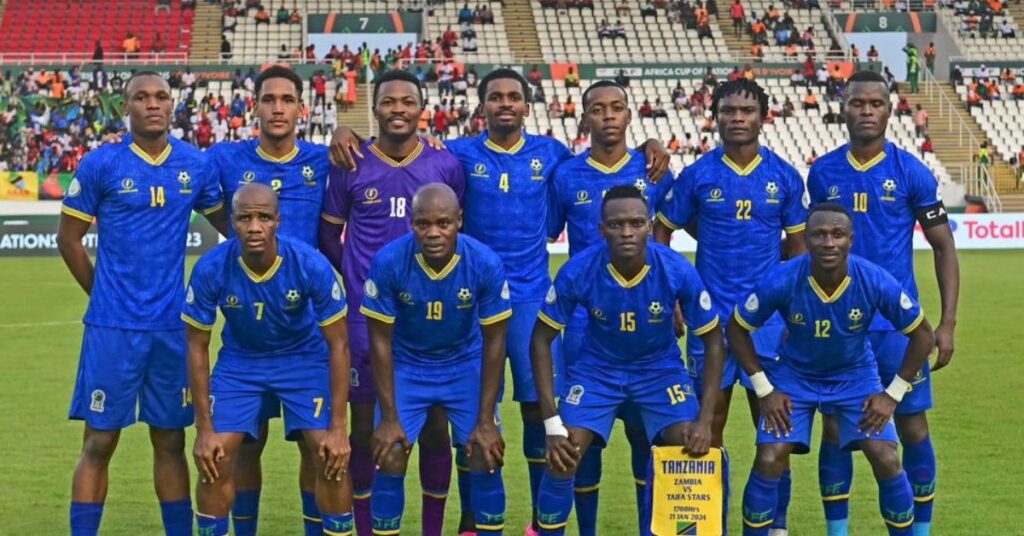Kenya’s Francis Oliele Under Fire Amid Tanzania’s AFCON Disqualification Allegations
The Guinea Football Federation (GFF) has launched a scathing appeal to the Confederation of African Football (CAF) after their team’s loss to Tanzania on November 19 cost them qualification for the 2025 Africa Cup of Nations (AFCON).
The GFF has raised concerns over what they describe as “cheating” by the Tanzanian team, accusing them of fielding an illegal player during the crucial match.
In a match that saw Guinea lose 1-0 to Taifa Stars, the GFF has cited irregularities regarding the participation of a player whose jersey number was not listed on the official team sheet. “This is a clear violation of the competition’s rules,” stated the Guinea FA in their appeal. They have called for CAF to award them the match, arguing that the result was unfair due to the illegal substitution.
The controversy has intensified with the involvement of Kenyan official Francis Oliele, who served as the CAF match commissioner for the game. According to the GFF, Oliele’s actions during and after the match were “inexplicable.”
“He went so far as to ask Guinean officials to go to CAF instead and not to him,” reads part of Guinea’s appeal. They also questioned the decision to appoint both the match commissioner and security officer from Kenya, given that it is part of the same Zonal Union as Tanzania. This raises questions about impartiality and the potential for conflicts of interest in the oversight of the game.
The GFF’s appeal points to the role of the match commissioner, as outlined in CAF’s regulations, highlighting the official’s responsibility to ensure fairness and to address any grievances before, during, and after the match.
They believe Oliele’s failure to address their concerns in the proper manner could have impacted the integrity of the match.
As the situation unfolds, CAF is expected to review Guinea’s claims, and a decision regarding the appeal could significantly alter the qualification race for AFCON 2025.

The roles of a match commissioner, as outlined in AFCON’s regulations Article 23:
- CAF’s Official Representative: The match commissioner is CAF’s official representative at the match and must be present for the game. If an emergency prevents their attendance, they are required to send an official apology to both CAF and the host nation, with the host nation responsible for their transport.
- Accompanying Guests of Honour: If there are any distinguished guests attending the match, the match commissioner is responsible for introducing them to the players and referees.
- Pre-match Briefing: The match commissioner convenes a meeting with the officials of both teams and the referees the day before the match. This meeting serves to explain the competition’s rules and ensure everyone is on the same page. If the commissioner is absent, the center referee takes over this responsibility.
- Match Postponement: In cases where the match cannot be played due to safety concerns for the referees or visiting team, the match commissioner has the authority to decide to postpone the game until conditions are met.
- Handling Complaints: If a complaint is made before the match, the match commissioner is expected to try to resolve it within existing structures. If they are unable to resolve the issue, they must document it in their match report.
- Observation and Reporting: During the match, the commissioner observes everything, including referee performances, team behavior, and fair play. They then submit a report to CAF’s Secretary General within 48 hours after the game.

In Other News: Jamii Telecommunications Takes Starlink To Court For Offering Unreasonably Cheap Internet Prices In Kenya
Kenya’s Francis Oliele Under Fire Amid Tanzania’s AFCON Disqualification Allegations

